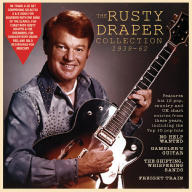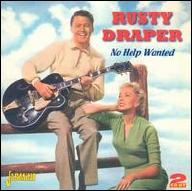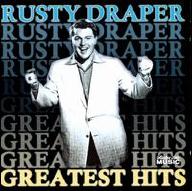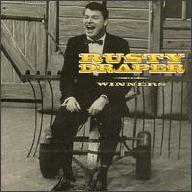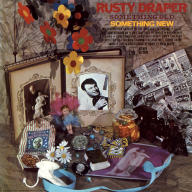Draper's early Mercury efforts, including Devil of a Woman and Sing Baby Sing, generated little interest at radio, and even Release Me, a 1952 duet with Patti Page, failed to jump-start his career. In early 1953 he nevertheless mounted a national club tour, and the publicity gave a much-needed push to his sixth Mercury release, a cover of the Carlisles' country hit No Help Wanted. In June, Draper released Gambler's Guitar, and everything clicked -- the record sold over a million copies and not only reached the country Top Ten, but also cracked the pop charts. The follow-up, Bummin' Around, failed to match its predecessor's success, however, but Draper quickly rebounded with Lighthouse and Native Dancer, both of which reached the number 23 slot. He struggled in 1954 with a series of little-noticed releases including I Love to Jump, The Workshop of the Lord, and Shame on You, but hit paydirt again in 1955 with the Top 20 pop hit Seventeen, peaking at number three with the follow-up, The Shifting, Whispering Sands, and closing out the year with Are You Satisfied?, which flirted with the Top Ten. During 1956, Draper remained a radio fixture with Held for Questioning and House of Cards, and returned to the Top 20 with In the Middle of the House. (Vaughn Monroe's competing version hit number 11.)
Draper entered 1957 weakly, scoring only minor chart success with Let's Go Calypso and Tiger Lily, but a cover of Chas McDevitt's U.K. skiffle smash Freight Train returned him to the Top Ten by year's end. From there Draper's brand of middle-of-the-road country-pop again fell out of favor, and singles like June, July and August, With This Ring, and Can You Depend on Me? sold poorly. His 1960 reading of Muleskinner Blues proved a surprise British Top 40 hit, while its flip side, a cover of Hank Locklin's classic Please Help Me, I'm Falling, reached the number 54 spot on the U.S. pop charts. With 1961's rendition of Cowboy Copas' Signed, Sealed and Delivered, Draper scored his final hit for Mercury, and after issuing Beggar to a King the following summer, he left the label to sign with Monument, reaching number 57 on the pop charts in the fall of 1953 with Willie Nelson's Night Life. A comeback was not in the cards, however, and subsequent Monument efforts It Should Be Easier and I'm Worried About Me went nowhere. The label terminated his contract following 1966's Mystery Train, although he hung around the lower rungs of the country charts for the remainder of the decade via minor hits like My Elusive Dreams, California Sunshine, and Buffalo Nickel. Draper remained a steady concert draw in years to follow, and also appeared in stage musicals and on television; in 1980, he squeaked into the country charts one final time with Harbor Lights. Draper died of pneumonia in Bellevue, WA, on March 29, 2003. ~ Jason Ankeny, Rovi


